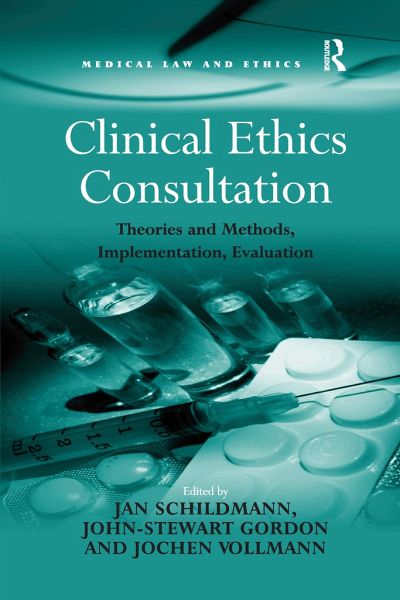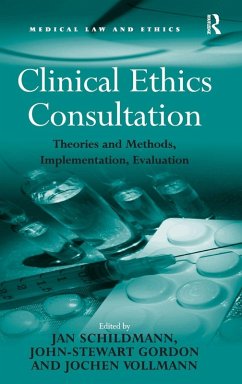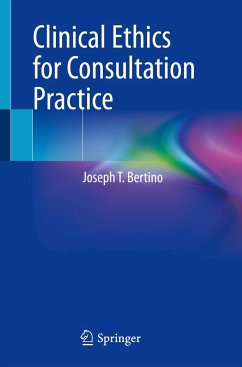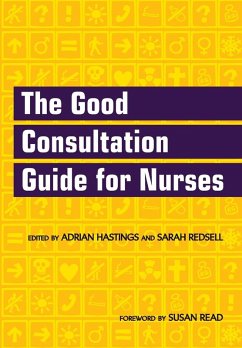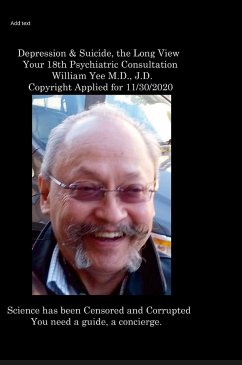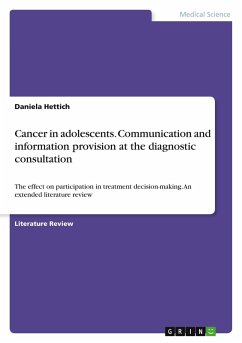John-Stewart Gordon
Broschiertes Buch
Clinical Ethics Consultation
Theories and Methods, Implementation, Evaluation
Herausgeber: Schildmann, Jan
Versandkostenfrei!
Versandfertig in 1-2 Wochen
Weitere Ausgaben:

PAYBACK Punkte
41 °P sammeln!




This volume brings together a group of researchers from different European countries and disciplines who are involved in Clinical Ethics Consultation (CEC). The work provides a discussion on the theories and methods underlying CEC and on the issues of implementation and evaluation.
Jan Schildmann, MA, MD, is a researcher in medical ethics and a physician. Following his medical studies at the Charité Medical School, Berlin, he received his MA in Medical Law and Ethics from King's College, University of London. After completing his clinical training in medical oncology and palliative care, he joined the Department of Medical Ethics and History of Medicine, Ruhr University Bochum, as a researcher in medical ethics. Dr Schildmann has published on the ethics of end-of-life care issues, the physician-patient relationship and the teaching of ethics and communication in medicine in the Journal of Medical Ethics, Medicine Healthcare and Philosophy, Palliative Medicine and several other journals. In addition he has co-edited three books on end-of-life decision making, clinical ethics and clinical ethics consultation. He has been a visiting researcher at the Centre for Ethics and Communication in Health Care Practice, University of Oxford (ETHOX). Dr Schildmann has received several awards including a prize of the European Association for Philosophy in Healthcare and Medicine, an Award of Best Practice on communication in oncology and a prize of the International Balint Federation. John-Stewart Gordon, MA. in philosophy and history at Konstanz University (2001), Ph.D. in philosophy at Göttingen University (2005). Currently, he is Adjunct Assistant Professor in philosophy at Queen's University in Kingston, Canada. He is member of the board of Bioethics and area-editor of The Internet Encyclopedia of Philosophy (IEP). He published two books as a single author Aristoteles ÿber Gerechtigkeit. Das V. Buch der Nikomachischen Ethik (Alber Press 2007) and Bemerkungen zum Begrÿndungstrilemma (Lit Press 2007). Furthermore, he is single editor of Morality and Justice (Rowman&Littlefield 2009) and co-editor of Bioethics and Culture (Cambridge University Press 2010). In addition, he published peer-reviewed articles in journals/encyclopedia such as Bioethics, Journal for Business, Economics, and Ethics or IEP. He taught philosophy and bioethics at Tÿbingen University, Ruhr-University Bochum, Duisburg-Essen University, and Queen's University Kingston. Jochen Vollmann, MD, PhD, is Professor and Director of the Institute for Medical Ethics and History of Medicine and Chair of the Centre for Medical Ethics, Ruhr-University Bochum, Germany. He completed a clinical training in psychiatry and psychotherapy at the University Hospitals in GieÃen, Munich and Freiburg, and wrote his habilitation thesis on ethical problems of informed consent in psychiatry at the Free University of Berlin. Prof. Vollmann was Visiting Fellow at the Kennedy Institute of Ethics, Georgetown University, Washington DC (1994/1995), Visiting Professor at the University of California at San Francisco School of Medicine and at the Mount Sinai School of Medicine, New York (1999/2000), at the Institute for the Medical Humanities UTMB (2001) and at the Centre for Values, Ethics and the Law in Medicine at the University of Sydney (2004, 2008 and 2009). He was honoured with the Prize for Brain Research in Geriatrics by the University of Witten/Herdecke in 1999 and with the Stehr-Boldt-Prize for Medical Ethics of the University of Zÿrich in 2001. Prof. Vollmann's research interests include informed consent and capacity assessment, ethics and psychiatry, end-of-life decision-making, advance directives, medical professionalism, clinical ethics committees and clinical ethics consultation.
Produktdetails
- Verlag: Routledge
- Seitenzahl: 236
- Erscheinungstermin: 11. November 2016
- Englisch
- Abmessung: 234mm x 156mm x 13mm
- Gewicht: 365g
- ISBN-13: 9781138254466
- ISBN-10: 1138254460
- Artikelnr.: 70934521
Herstellerkennzeichnung
Libri GmbH
Europaallee 1
36244 Bad Hersfeld
gpsr@libri.de
Für dieses Produkt wurde noch keine Bewertung abgegeben. Wir würden uns sehr freuen, wenn du die erste Bewertung schreibst!
Eine Bewertung schreiben
Eine Bewertung schreiben
Andere Kunden interessierten sich für




